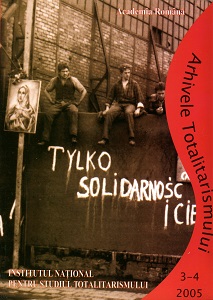Divergențele româno-sovietice din C.A.E.R. și consecințele lor asupra politicii externe a României 1962-1963, II
Romanian-Soviet Disputes within COMECON and Their Impact on Romania 's Foreign Policy (II)
Author(s): Dan CătănuşSubject(s): Diplomatic history, Political history, WW II and following years (1940 - 1949), Post-War period (1950 - 1989), History of Communism
Published by: Institutul National pentru Studiul Totalitarismului
Keywords: Soviet Union; Romania; COMECON; foreign policy; disputes;
Summary/Abstract: After 1956, the authorities in Bucharest took measures to restructure the national economy so as to ensure the regime’s internal stability and a solid economic basis to withstand Moscow’s pressure. Beginning in the late 1950s, these goals of Romania ran counter to the economic specialization within the Council for Mutual Economic Assistance (COMECON) that the most developed countries of the communist camp - Czechoslovakia and the German Democratic Republic - were pushing for. The latent conflict flared up in June 1962, when Nikita Khrushchev embraced the idea of specialization in the broader context of the economic integration of all the COMECON countries. Pressure from Moscow and the other COMECON partners would determine a veering in the foreign policy of Romania, with a political reorientation to China and an economic one to the West.
Journal: Arhivele Totalitarismului
- Issue Year: XIII/2005
- Issue No: 3-4
- Page Range: 77-98
- Page Count: 22
- Language: Romanian
- Content File-PDF

